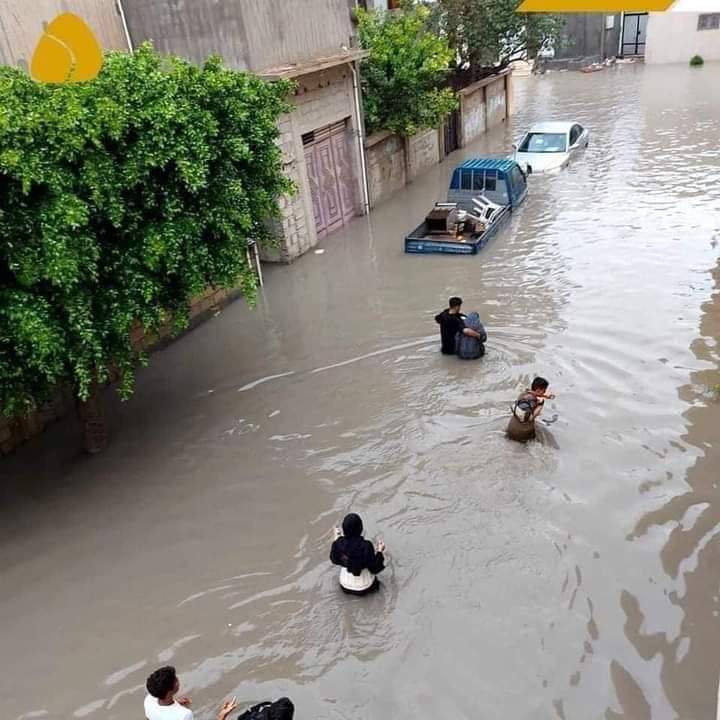A deadly storm hit eastern Libya on Sunday night, causing torrential rains and floods that killed at least 150 people and damaged property and infrastructure. The storm, named Daniel, is a Mediterranean storm
At least 150 people were killed when freak floods hit eastern Libya, officials said Monday, after storm “Daniel” swept the Mediterranean, its torrential rains earlier lashing Turkey, Bulgaria and Greece.
Images filmed by residents of the Libyan disaster area showed massive mudslides, collapsed buildings and entire neighbourhoods submerged under muddy water.
“At least 150 people were killed as a result of flooding and torrential rains left by storm Daniel in Derna, Jabal al-Akhdar region and the suburbs of Al-Marj,” said Mohamed Massoud, a spokesman for the Benghazi-based administration in Libya.
“This is besides the massive material damage that struck public and private properties,” he told AFP.
Hundreds of residents were still believed to be trapped in difficult-to-reach areas as rescuers, backed by the army, were trying to come to their aid.
East Libyan authorities had “lost contact with nine soldiers during rescue operations”, Massoud said.
He said the prime minister of the east-based government, Oussama Hamad, and the head of a rescue committee as well as other ministers had travelled to Derna to evaluate the extent of the damage.
Hamad’s government — which in war-battered Libya rivals a UN-brokered, internationally recognised transitional administration in Tripoli — on Monday declared Derna a “disaster area”.
Libya’s western government under Abdelhamid Dbeibah, during an extraordinary ministerial meeting broadcast live on television, announced three days of national mourning and emphasised “the unity of all Libyans” in the face of the disaster.
The National Petroleum Company, whose main oilfields and terminals are in eastern Libya, declared “a state of maximum alert” and suspended flights between production sites where activity was drastically reduced.
Experts have described storm Daniel — which killed at least 27 people when it struck parts of Greece, Turkey and Bulgaria in recent days — as “extreme in terms of the amount of water falling in a space of 24 hours”.
‘Severe Weather’
A Derna city council official described the situation in the city as “catastrophic” and in need of “national and international intervention”, speaking to the local TV channel Libya al-Ahrar.
He reported the collapse of four main bridges and two buildings in Derna, a city of 100,000 people that lies in a river wadi 900 kilometres (560 miles) east of the capital Tripoli.
The storm struck eastern Libya on Sunday afternoon, hitting especially the coastal town of Jabal al-Akhdar but also Benghazi, where a curfew was declared and schools closed for several days.
The United Nations mission in Libya on Monday said on X, formerly Twitter, that it was “closely following the emergency caused by severe weather conditions in the eastern region of the country”.
It expressed its condolences over the deaths and said it was “ready to support efforts by local authorities and municipalities to respond to this emergency and provide urgent humanitarian assistance”.
Libya, sitting on Africa’s largest known oil reserves, was plunged into chaos following the 2011 NATO-backed uprising that toppled and killed former dictator Moamer Kadhafi.
Two rival governments based in the west and east have been vying for power, with deadly conflict occasionally erupting.
The French ambassador to Libya, Mostafa Mihraje, also offered his condolences and expressed his “solidarity with the Libyan people in this ordeal”, also in a message on X.
In neighbouring Egypt, authorities called for caution on the northern coast which borders eastern Libya, and announced they were beginning preparations to minimise the impact of Storm Daniel.
The weather forecast predicted more heavy rain in coming days there.
As the world warms, the atmosphere contains more water vapour which increases the risk of heavy precipitation in some parts of the world.
Combined with other factors such as urbanisation and land-use planning, these more intense rainfall events contribute to flooding.
=================== REUTERS ==================================




